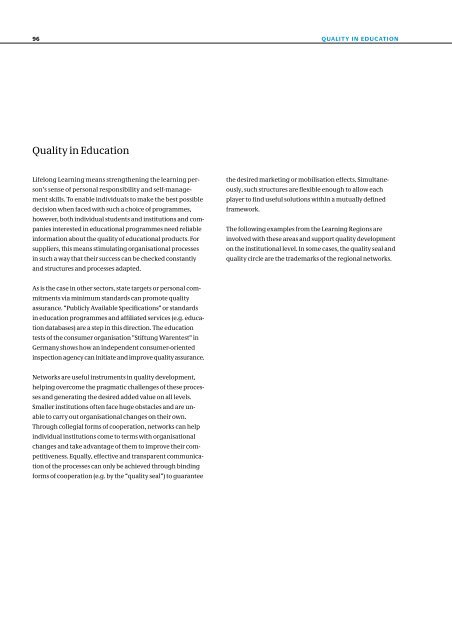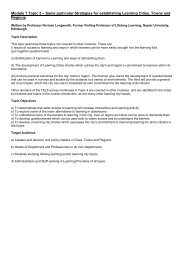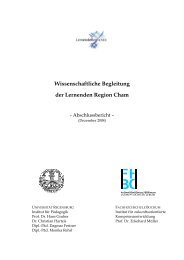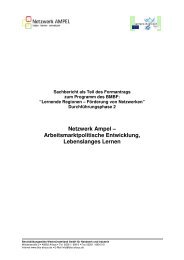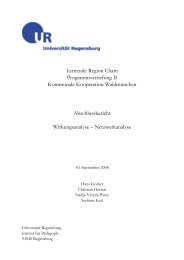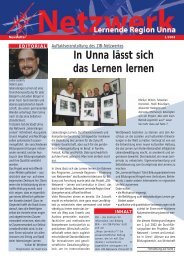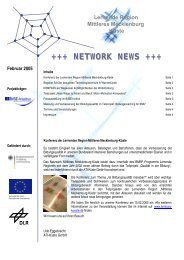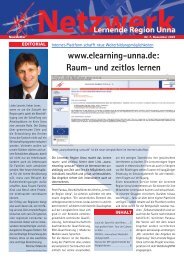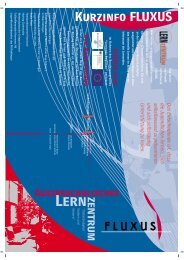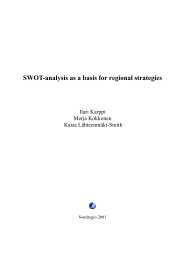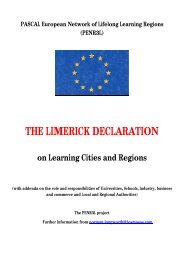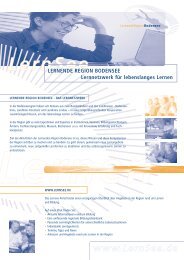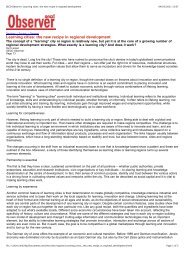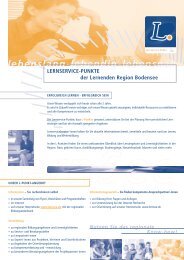Die Strategie für das Lebenslange Lernen ... - EUROlocal
Die Strategie für das Lebenslange Lernen ... - EUROlocal
Die Strategie für das Lebenslange Lernen ... - EUROlocal
Erfolgreiche ePaper selbst erstellen
Machen Sie aus Ihren PDF Publikationen ein blätterbares Flipbook mit unserer einzigartigen Google optimierten e-Paper Software.
96 QUALITY IN EDUCATION<br />
Quality in Education<br />
Lifelong Learning means strengthening the learning person’s<br />
sense of personal responsibility and self-management<br />
skills. To enable individuals to make the best possible<br />
decision when faced with such a choice of programmes,<br />
however, both individual students and institutions and companies<br />
interested in educational programmes need reliable<br />
information about the quality of educational products. For<br />
suppliers, this means stimulating organisational processes<br />
in such a way that their success can be checked constantly<br />
and structures and processes adapted.<br />
the desired marketing or mobilisation effects. Simultaneously,<br />
such structures are flexible enough to allow each<br />
player to find useful solutions within a mutually defined<br />
framework.<br />
The following examples from the Learning Regions are<br />
involved with these areas and support quality development<br />
on the institutional level. In some cases, the quality seal and<br />
quality circle are the trademarks of the regional networks.<br />
As is the case in other sectors, state targets or personal commitments<br />
via minimum standards can promote quality<br />
assurance. “Publicly Available Specifications” or standards<br />
in education programmes and affiliated services (e.g. education<br />
databases) are a step in this direction. The education<br />
tests of the consumer organisation "Stiftung Warentest" in<br />
Germany shows how an independent consumer-oriented<br />
inspection agency can initiate and improve quality assurance.<br />
Networks are useful instruments in quality development,<br />
helping overcome the pragmatic challenges of these processes<br />
and generating the desired added value on all levels.<br />
Smaller institutions often face huge obstacles and are unable<br />
to carry out organisational changes on their own.<br />
Through collegial forms of cooperation, networks can help<br />
individual institutions come to terms with organisational<br />
changes and take advantage of them to improve their competitiveness.<br />
Equally, effective and transparent communication<br />
of the processes can only be achieved through binding<br />
forms of cooperation (e.g. by the “quality seal”) to guarantee


